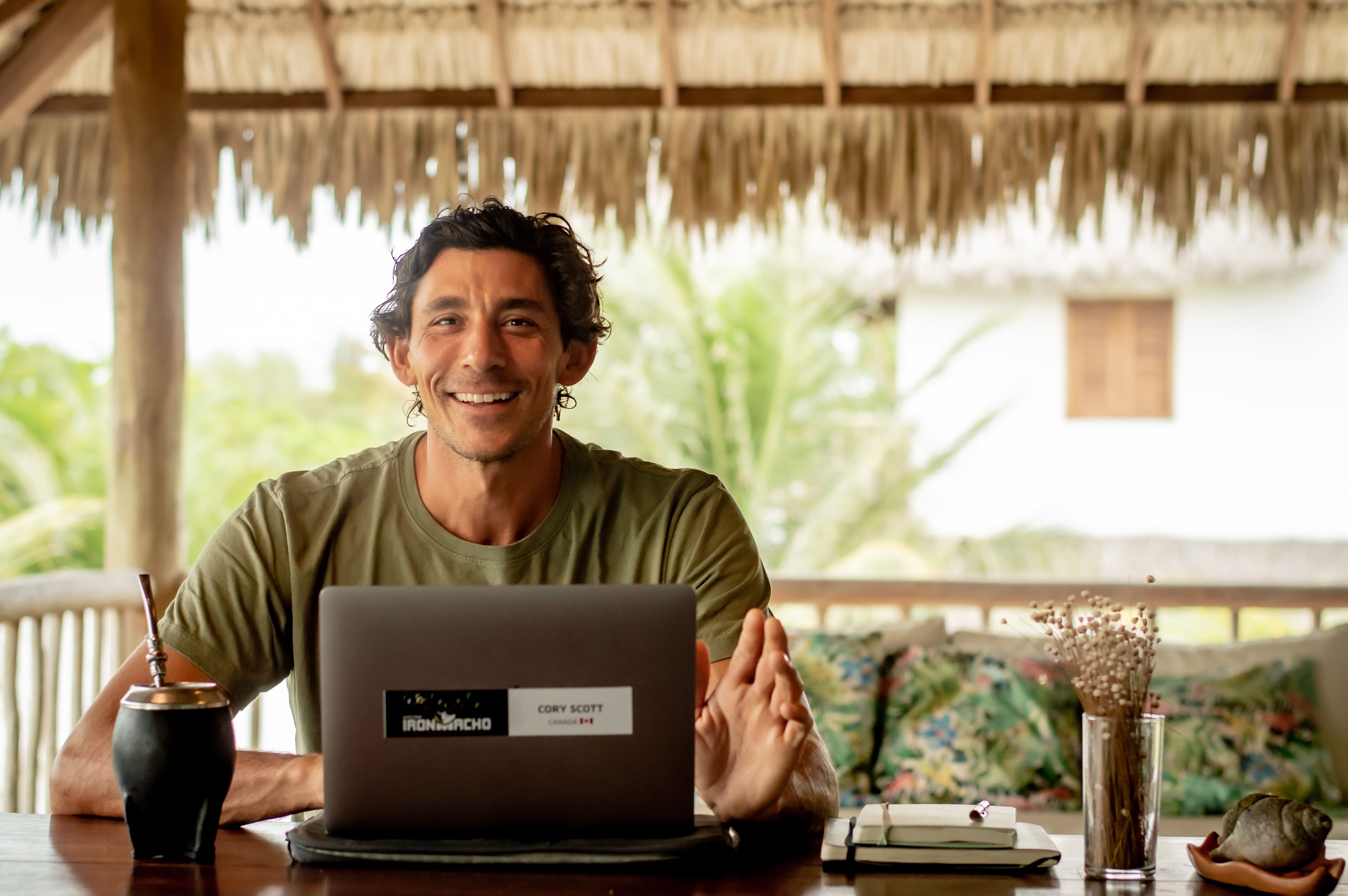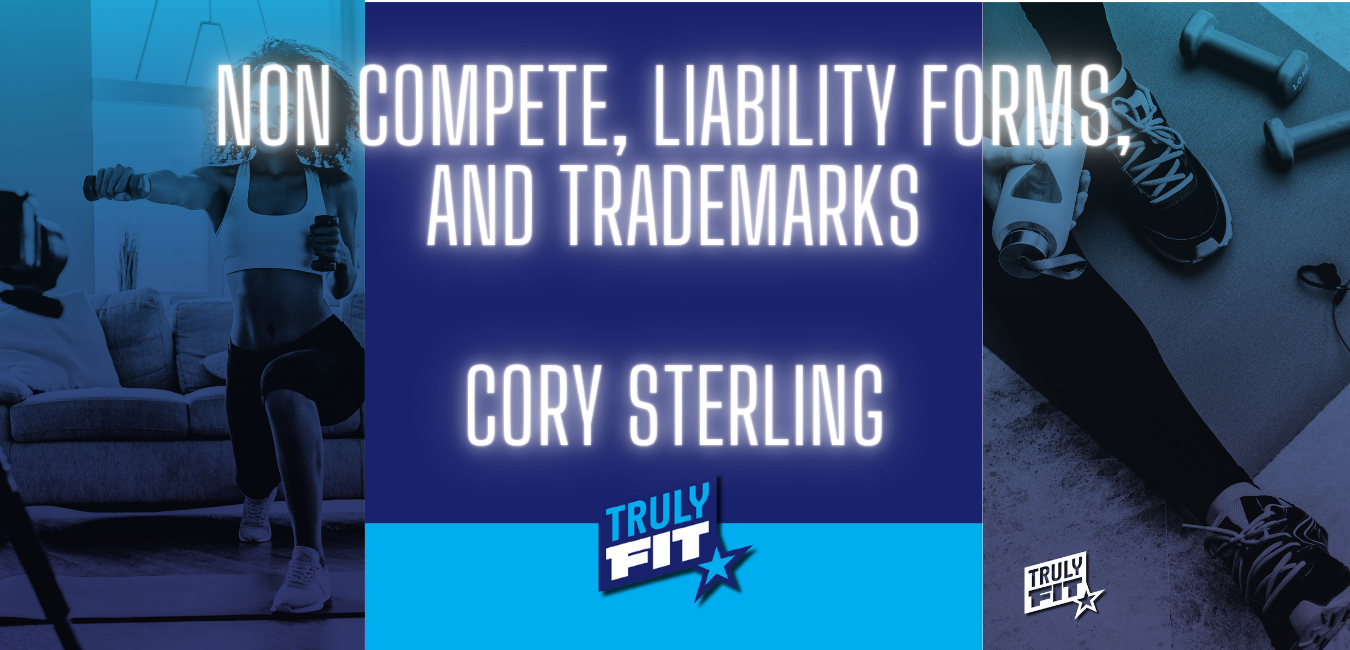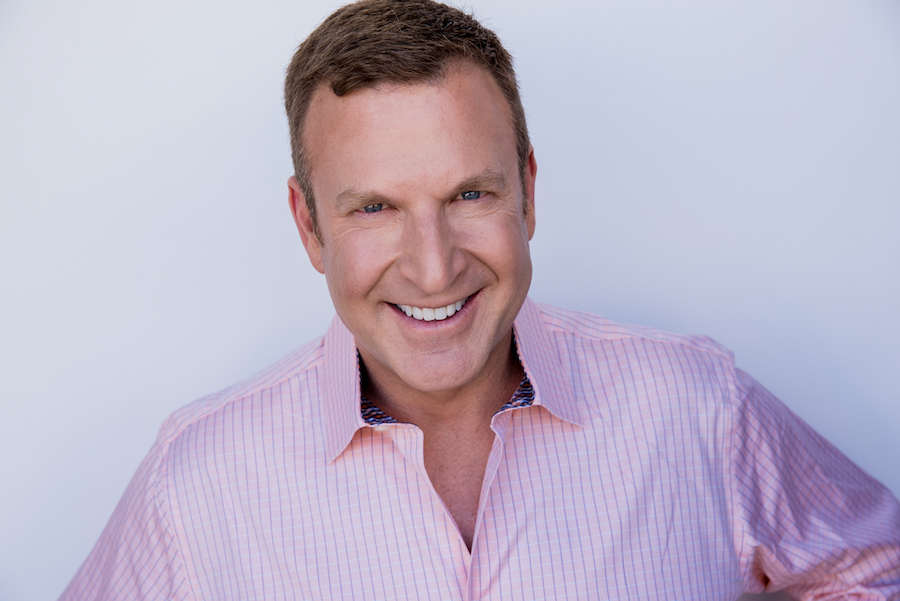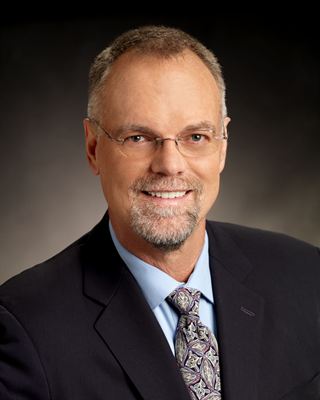
Non Compete, Liability Forms, and Trademarks

CLICK FOR AUDIO OF PODCAST
Guest: Cory Sterling
Release Date: 11/26/2023
Welcome to Trulyfit the online fitness marketplace connecting pros and clients through unique fitness business software.
Steve Washuta : What should you actually be concerned with? When looking at a non compete clause? Should every health and fitness business whether you’re a single person or a massive fitness studio, work with a lawyer proactively? What is the difference between copyright and trademark? And are you setting yourself up for a huge financial disaster if you do not secure one, we discuss all this and more in the upcoming podcast.
Steve Washuta : Welcome to the Trulyfit podcast where we interview experts in fitness and health to expand our wisdom. And well I’m your host, Steve Washuta. Co Founder of Trulyfit and author of Fitness Business 101. On today’s episode I have on Cory Sterling.
Steve Washuta : He is a lawyer that works specifically with health and fitness businesses and entities. His company is conscious counsel, you can find them at conscious counsel.ca. I’ll provide the links in the podcast description. Cory goes over everything from liability forms to things you should be thinking about when you’re selling your fitness business.
Steve Washuta : It was a great conversation with no further ado, here’s Cory. Cory, thank you so much for joining the True Fit podcast. I wanted to give my listeners and audience a little background as to who you are and what you do day to day in the health and fitness obviously law related industry.
Cory Sterling : Steve, thank you so much for having me. The name of the podcast is inspiring for me to be truly fit. On a day to day basis. I’m a lawyer for fitness and health professionals, whether it’s gym owners, personal trainers, health coaches, anyone who really works in health and wellness,
Cory Sterling : I advise them legally I help them draft agreements, I make sure that they’re protected. And if a problem comes up, I’m here to support them in resolving it.
Steve Washuta : What got you into that niche? Specifically? Is it because you are sort of a fitness buff? Is it because you saw a hole in the market where no one else was a combination?
Cory Sterling : Yeah, I got it started because I was I was a lawyer working at a big law firm, and I really loved my job in full transparency. The first client I ever had was a tobacco company. So I had a background of working in sports, I worked for the Oakland Raiders, and NFL media services for a couple of years.
Cory Sterling : And I just love sports. It’s who I am. And at the same time that I was working at this big law firm helping defend tobacco companies. I was a personal fitness trainer, I was a group fitness trainer, I was a cycle a spin instructor, a cycling instructor. And I was becoming a yoga teacher. And I just thought like why don’t and I realized there was such a gap in the industry that there were so many new professionals up and coming starting businesses. And they no one knew anything about the law.
Cory Sterling : And I just thought cool, like, I’m super motivated to work with these people. Because I feel like I’m part of the community myself. And there’s a need for it. And so and I think that I can do it in a relatable way I understand what they’re going through, I understand the legal issues. And I feel really well equipped to be able to advise them and work with them. And I think also like even from the moments that you and I have gotten to know each other everyone who I’ve worked with in health and fitness, I feel just a connection with us. We’re all part of a bigger community.
Steve Washuta : So those are some of the reasons, why do you think that every business whether it’s like a single person LLC, or a bigger business involved in health and fitness should reach out to a lawyer in advance like as, as a proactive measure, instead of just reactive when there’s a problem?
Cory Sterling : Yeah, the first lesson that I learned from one of my mentors in law when working with small business owners, he he gave me an adage that I’ve always explained to my clients or when I’ve gone on webinars or given live talks. And that is you have to look at the law as a pay me now or pay me later proposition, which essentially means, look, if you run a business and you’re dealing in physical activity, or you’re making recommendations for health and lifestyle, at some point, there’s going to be some legal issue that will come up for you in the lifecycle of your business.
Cory Sterling : And if you make the investment upfront, and you’re proactive about having documents that protect you, that’s sort of like the pay me now like, Okay, I understand this is a cost of doing business to be legally protected, to be at best practices to make sure that I have everything in the right place where it needs to be versus the pay me later where it’s like, oh, maybe I could just borrow my cousin’s documents or download this template and go along for a year, year and a half, two years, no problem.
Cory Sterling : God forbid something happens and you actually need to rely on those documents, then you ended up paying, you know, between three to 10x what the original investment would have been.
Steve Washuta : Yeah, and I might even add to that it’s probably pay me less now or pay me more later. Because I would imagine whatever problems you’re dealing with are gonna be more hours down the road if you don’t preemptively get ahead of it.
Cory Sterling : Always and it’s the thing that breaks my heart is how easily avoidable so many of the issues that I have to resolve for clients are. It’s not it really isn’t rocket science. It’s law. And that was a joke, but not A great job. But it’s, it’s something that, you know, when, when you’re when you own a gym when you’re a personal trainer, when you’re a health coach, okay, these are the six legal boxes that I need to check.
Cory Sterling : Let me do that, let me go get as many clients as I can, if there’s a problem, I’ll turn it over to my lawyer who will deal with it, as opposed to trying to cut corners. And then in the long run, that just becomes it can become very, very, very, very expensive and even prohibitive in the in the continuance of the business outside
Steve Washuta : of obviously naming names. Can you walk us through any legal nightmares that you had to deal with? Whether it was a person or a business entity?
Cory Sterling : Yeah, definitely clients getting injured equipment, breaking people suffering significant damages more than six figures, not proper, a lot of employee and contractor issues, whether it’s misclassifying, the people who work for you, or audits by the IRS as a result of MIS classification, nightmares in relation to different members of your studio who are harassing or creating problems for other members.
Cory Sterling : And you know, you don’t have legal agreements in place that outline what behaviors are acceptable and what is not acceptable. It’s it’s the the golden rule is you want to be in control of your relationships, really, as a as a health and wellness lawyer. That’s what I do. I empower my clients to be in control of their relationships, whether that’s protecting their assets, whether that’s communicating expectations with their team, whether that’s making the proper classification for their workers, you just want to be in control. That’s the name of the game.
Steve Washuta : What is the bare minimum that someone should do? Let’s go ahead and say they’re like, Hey, listen, I just started my business. Cory, I’m gonna reach out to you in six months or a year when I have a little bit more capital, but I can’t, what is the bare minimum, let’s say a personal trainer or yoga instructor could do as far as like, having a client sign a form so that they are not liable for injuries. Waiver of
Cory Sterling : liability, if we’re talking just one, if there’s only one that that you’re taking, it’s the waiver of liability. And it has to be specific to what you do, how you do, where you do everything, what equipment you’re using, because the thing that fitness professionals, fitness and wellness professionals need to understand at law, there’s something that’s called a duty of care. And what that means is, if I’m facilitating services or activities for you, I have a responsibility to make sure you do not suffer damages.
Cory Sterling : Now, if you suffer damages, I’m going to be responsible because I’m the one facilitating these activities with this, these these services, the waiver of liability negates that liability and says, Cool, I’m only going to work with you, based on the understanding that this is what we do. This is how we do it. It’s online, it’s pre recorded, it’s in person, it’s whatever it is, this is the equipment, this is what can go wrong. This is the injuries. These are the injuries that you can suffer, if something goes wrong, you agree to voluntarily participate, you agree not to hold me responsible, you’ve gotten the appropriate medical clearance. Once you sign and agree to this, then we can start working together.
Steve Washuta : Let’s create information. You know, from from my perspective, someone who helps personal trainers better their business, what I see is not personal trainers and client relation issues that need legal help. But it’s a lot of times it’s personal trainers who are working for big box gyms, and they have issues with their contracts. So one of the major things and this goes for all health professionals, my wife has a position she had to deal with this as non compete clauses, how much do they stand up? How can a personal trainer get out of that? What is what is the real strength behind non compete clauses?
Cory Sterling : First first part of the question is that it’s jurisdiction based. So whether or not a non compete will apply will be specific to the state that it is that it was drafted in, but the jurisdiction or the the the venue for that particular agreement. Secondly, it’s usually I would say, as a general rule, generally speaking, again, subject to the jurisdiction issue. If it’s an independent contractor, it is very, very highly unlikely that a non compete will apply. If someone is an employee, there is a higher chance, but some states have just outright eliminated non competes in any way.
Cory Sterling : And the way that you always want to look at a non compete is in a sense of reasonableness. So how restrictive are this are the activities? What is the jurist? And what is the geography of its trying to restrict? How long is the timeframe of what they’re trying to restrict? And how specific is the activity that is trying to restrict? So the answer to your question is, nine out of 10 times that a client has paid me to review a non compete provision in context of they work for a gym, they work for the studio, they work for whoever nine out of 10 times I found that the provision does not apply. But that’s obviously subject to the specifics of what’s drafted and the variables that I mentioned.
Steve Washuta : Yeah, that’s interesting. I always thought about how, you know, I can’t really be a cop competition if you do something different, so let’s go ahead and say, I work at a yoga studio and I signed a non compete, yet I do private, individual personal training somewhere else or in my house, right? Those are two different things just for both health entities. But if your yoga studio doesn’t offer personal training, one would think I can circumvent that non compete, correct? Yeah,
Cory Sterling : it’s not even circumvent, like I mentioned, one of the three variables is how restrictive is the is the is the provision. So for example, if I’m a yoga teacher, and a yoga studio has me sign a non compete that says, anything more than you will not teach yoga. That would be unreasonable. Because I’m a yoga teacher, I’m teaching yoga for you, you can’t restrict me to do anything else.
Cory Sterling : But I can tell you even if it’s trying to restrict just the teaching of yoga, it’s different, it would be very difficult for a studio to be able to enforce that because a non compete restricts someone’s ability to earn a living in their own profession. So you It depends how narrow narrowly drafted, the provision is, and also other variables that are plates, like, how much was I working there? How much was I earning?
Cory Sterling : Like, for example, I had a client who’s a personal trainer in the state of Washington, and they were earning something like $45,000 a year working at a club, and they wanted to go out and start their own. And the employment agreement had a non compete provision. Well, the state of Washington explicitly states if you’re earning and I don’t quote me on the exact number, but it was something like if you’re earning below $105,000, in no context whatsoever, will a non compete apply?
Cory Sterling : So that’s an there like I said, there’s lots of variables based on the jurisdiction. But that’s an example where if I’m a yoga teacher, and I’m getting paid $25 an hour, and I work four hours a week, and they’re trying to tell me that I can’t teach yoga privately to my own clients. That, to me, I would see that being very difficult to enforce.
Steve Washuta : What about taking clients away? Is that considered non compete? Is that some is that a totally different sort of legal term? If, if I tried to, again, steal a client for lack of a better term from facility? Yeah,
Cory Sterling : the term for that is non solicitation. And what that means is that so long as you’re working for a particular company, or a business, or a studio, let’s say you’re not allowed to actively solicit. And I mean, legally, there’s a term that you put in like, actively or inactively solicit, I don’t know how one inactivity solicits. But not to keep things not to make things too legal.
Cory Sterling : But basically, what you’re not allowed to do is use a platform, use your platform in that particular context, to say, Oh, hey, guys, if you enjoyed this six o’clock, you know, let’s say it’s a spinning class, hey, if you enjoyed this six o’clock spinning class at our gym, just so you know, I do private spinning classes at my home studio. So here’s my phone number, or write down your email on this list.
Cory Sterling : And I’ll contact you, that’s an example of something that you cannot that you’re not allowed to do. But what’s really changed in the industry is with the advent of social media, and Instagram, and especially after COVID, it’s sort of like every personal trainer sort of became their own gym, because, you know, you have your favorite instructor at the studio or at the gym, and you follow them on Instagram, and you see them doing things and you can send them a direct message. If I’m if I’m a if I’m teaching at a gym, and I post a video of me doing bicep curls, and someone says, Hey, Cory, Wow, your biceps are so big.
Cory Sterling : You know, I love to work with you. Are there any things that you do? That’s not me soliciting business from them? The classic example in law school they teach you around non solicitation is like, sort of, like I mentioned, like making a public announcement to everyone like, Hey, if you want to do other things come work with me personally.
Cory Sterling : Or the classic example is going into the email system of the gym that you work at sending an email to all the members and saying, Hey, did you know Cory is doing special bicep classes on the weekend? Click here to sign up. So it’s, it’s a difficult question because the client ultimately decides like, gyms don’t own their clients. But you also it’s a balance between the relationship that you have with the gym or studio owner, versus what is acceptable behavior, and also what you feel comfortable with? Sure. Would you
Steve Washuta : think that a gym might come after somebody financially? If they were to do that? Let’s say, I’m maybe on my way out, I go into the computer system and I email 50 people what a gym come after me financially.
Cory Sterling : It depends on the mindset of the gym, but would it be if you had a non solicitation agreement in the employee or in the W two or 10, I’m in an agreement, and it’s explicitly you know, wasn’t non solicitation agreement and the gym could demonstrate that they suffered damages, and they felt like enforcing their rights, they would have a very, very, very easy case against you if they decided to pursue that action.
Steve Washuta : Let’s talk about intellectual property. I’m very naive to This so feel free to discuss this high level before you get into specifics. What’s the difference between a patent and a copyright and trademark and how do you differentiate them?
Cory Sterling : Yeah, so the in I don’t do anything as it relates to patents. But I know that patents are probably in the in the fitness industry would be most relevant for like creating a new tool, or a new creation is basically when you make something new or a new invention, or a new design for something, you create a patent around it.
Cory Sterling : I don’t do any patent work I never have. But the biggest issues that I see health and wellness professionals going through is the difference between copyright and trademark. So copyright is protection of an artistic work, which usually will be a video or written manual. So it’s usually audio, video or written words.
Cory Sterling : And basically, let’s say I create a training manual or a training program. I would register that with the copyright office with the USPTO or, you know, the US Copyright Office, and I would receive a certificate and I would say, Okay, here’s, you know, Corey Sterling Corey Sterling’s training manual I had submitted, they would give me a copyright certificate, then if anyone is copying what I do, it’d be a copyright infringement.
Cory Sterling : I have a copyright certification number, all of those sorts of things. So copyright relates to artistic works specifically in this case would be audio, video and written words. Trademark has to do with the protection of either a word or a series of words or a logo, and what registries what registration of a trademark does, whether it’s a trade name, whether it’s a slogan, whether it’s a word that’s associated with your goods and service, when you file and register a trademark, you have exclusive use to that particular word or series of words or logo to everyone else in the world, or at least in the United States.
Cory Sterling : And you have enforceable rights, which means that you have exclusive use, if anyone else is using it, you’re allowed to enforce your rights by sending a cease and desist by you know, launching a lawsuit if they don’t stop using it. But also what registering a trademark does to help you is that it prevents someone else from registering a trademark under you, and then them enforcing those rights against you.
Steve Washuta : Interesting, let’s go through sort of a for lack of a better term, like a more tangible case here, something like a like Bikram yoga, or the movement patterns, what’s copyrighted or is the name a combination of the two.
Cory Sterling : Okay, big big from there was a case in in New York circuit courts where Bikram tried to enforce by virtue of copyright, his sequence of poses, which was in the court originally, I think, originally he succeeded. And then there was appeal by a yoga studio in New York, which challenged it. And the courts found that the sequences had been in the public domain for long enough, like yoga had been around for 2000 years or however long.
Cory Sterling : And the the, the content of his series was in the public domain long enough so that he did not well, he was not able to have exclusive use to it as an artistic work. And so that’s that’s not really the that issue legal issues, not really the norm so much. But that’s something that, you know, is certainly a landmark case and, and goes to more the question of what’s in the public domain and what is not. In terms of registering, you know, a trademark name for Bikram yoga.
Cory Sterling : At Law, you’re not allowed to trademark names because remember, you have exclusive use. So if the USPTO or to allow the registered trademark for a name, that means that someone who has that name would not be allowed to use it, which is prohibitive in that particular case.
Cory Sterling : But from the different experiences that I’ve gone through in helping clients with trademarks, though the most challenging situations that I’ve seen our existing successful businesses not registering a trademark, being a going concern, building, growing, expanding maybe multiple locations, whatever it is that they’re doing, and then out of nowhere getting a cease and desist letter from someone who registered a trademark before them.
Cory Sterling : And the way that the rights work as it relates to you know, trade names or business names or slogans or logos or whatever it is, as long as both parties have not registered, whoever’s been around longer has better priority. But once one party registers a trademark, automatically, they get bumped up even in front of someone who’s been using it longer.
Cory Sterling : And then the onus is on the party that is not registered, they have they would a immediately have to file a trademark and be there to have to challenge the trademark to allege and demonstrate that they have been using it longer. And that will be a very costly and lengthy process. So I’ve had clients who are seven figure businesses that are cruising going along, never registered a trademark, you know, I meant to do it, but I never did as a lawyer.
Cory Sterling : I always hear the same In things, they get a cease and desist. Sometimes it’s too late. Sometimes the mark, the registration has already gone through the whole process. Another party has received a trademark certificate for that particular mark. And their legal position is zero and they have to rebrand everything. Wow.
Steve Washuta : Yeah, I could I could only imagine what that would entail. are trademarks, international, or are they just put in countries statewide? How exactly does that work?
Cory Sterling : There are treaties there. And I believe it’s called the Madrid protocols of 1919, which don’t quote me on that. But basically, for the way that it works is when you register in all of the jurisdictions that are part of the same treaty. And so for example, EU, Australia, Canada, United States, when you register in one jurisdiction, you have a basically a grace period have something like six months to register in multiple jurisdictions.
Cory Sterling : So let’s say on January one, I register with the USPTO, I would have until July one to register in Canada, and still have that better priority. Remember, I said the priority is all about time and timing of filing. So you have a grace period to register in multiple jurisdictions. But let’s say that time elapses and I never registered in Canada, and on July 2, someone else registers in Canada Canadian business.
Cory Sterling : Then they would have better better priority than me in Canada, and really, like the trademark game is all about the government, rewarding proactivity as it relates to trademarks, and that includes across international borders.
Steve Washuta : So from a recommendation standpoint, hypothetically, I’m starting a studio and it’s called Yoga flex, I have a particular look and a brand, I reach out to somebody for advertising, they build me, you know, sort of a colored panel, and I by the LLC, I have a website that says yoga flex.com, I would be missing out by not also trademarking that
Cory Sterling : you’d want to trademark once, once you’re making investments like that, once you know that you’re building your business around this, and that you Yeah, then definitely, that would be, that would be the time. And this is just like a technical note. And I’m a lawyer, and I’m a nerd about this stuff. So I have to say it. But there’s two different types of applications.
Cory Sterling : One is a current use filing, and one is an intent to use. So if all I’ve done is build a website and all the things but I’m not actually offering the services, I would have to file an intent to use application, which is just a longer process and a little bit more expensive. But what I would what I would recommend is like the day that you actually start using the mark, that would be the day to register the trademark.
Steve Washuta : We’ve sort of done this the whole time, in a sense, but give me a quick elevator pitch, if I’m a personal trainer, I have my own private gym in my house and LLC, and I have insurance. And I have, you know, forms I’m already having like my client sign, but I haven’t met a lawyer, give me the pitch to why I should meet with a lawyer.
Cory Sterling : It needs to be specific to your business. And what you do think about a seatbelt that’s not properly put in. That’s what it’s like using documents that were not drafted by an industry specific lawyer. So you, you maybe you feel a false sense of comfort, because you’re like, oh, it’s an agreement.
Cory Sterling : And the person who used it was my coach, and they’re really professional. And they really know, in all of my experiences, if there’s an issue that comes up, it’s always going to be about the specificity of the documents. So as an example, let’s say you have a garage gym, and it’s it’s inside your garage, and the waiver of liability doesn’t state anything about that. And someone is something happens with the garage door, right?
Cory Sterling : Okay, let’s have a general waiver that says, Okay, you’re going to be doing all these different exercises. Firstly, I would imagine that that waiver that you’ve copied or the the general one that an industry specific lawyer prepared for you, it’s not going to list all of the equipment, which is super, super important to do. But let’s say it doesn’t mention anything about a garage door. Some accident happens, the person’s walking, they hit their head on the garage door, and now they’re cut, they hit their head, they have a concussion.
Cory Sterling : They are a programmer, they’re not able to work any longer or look at screens. Done. There’s there’s nothing in the specific activities that you offer that outline that specific risk. So yeah, maybe you’re right that I was I got I had a document that said, we’re going to be training weights together and doing something general, but it didn’t outline that specific risk.
Cory Sterling : And when I tell you, Steve, that it happens every time it happens every time, every time the issue will come down to something that the opposing lawyer will send me a response or say, Yeah, okay, you’re right. But you know, if you look at the waiver of liability, it didn’t say anything about this, or it didn’t say anything about this piece of equipment. So how could my client have signed under way, their rights to not hold your client client legally responsible if the specifics of the activity were not even listed.
Cory Sterling : And then it’s a game of it’s a game of legal position and what I want for all of my clients, I want them to have premium platinum legal position, that it’s unquestionable it’s unequivocal. If you come after us, we’re going to counterclaim plus legal fees, plus everything. And because the document is so ironclad, we can rely on that. And that’s really how you make a lot of these problems go away.
Steve Washuta : It’s great information. Can you speak to anything concerning and regarding like the sale of a fitness business of some sort? Would there be moves that need to be made on the front end during your business or at the end to make sure that everything’s tied up legally? Yeah,
Cory Sterling : the biggest issues are going to be firstly, you always want this as another reason to register a trademark, because by virtue of registering a trademark you that’s part of the goodwill, that’s an asset, I’ve been part of different sales, where I’ve seen price decreases of up to 30% of the sale, because there wasn’t a registered trademark for the business.
Cory Sterling : And because often what people are buying, whether it’s a share sale, or whether it’s an asset sale, they’re always buying the goodwill of the business, which is the name, the logo, you know, the reputation that it has the client base, that’s, that’s the bread and butter of of what the sale usually is about. It’s not about equipment. So one thing is making sure looking at trademarks as an investment for the future that when you want to sell your business, you know that the value of that trademark will pay off for itself when the sale is closed.
Cory Sterling : Other things to make sure of if you’re buying is like that you’re not inheriting the debt or potential legal loss, legal actions or lawsuits, or any IRS tax filing issues. I’ve seen that come up for sellers. If you’re a buyer, you just want everything to be in order. So you want employee agreements, you want independent contractor agreements, you want trademark, you want everything with the government with taxes, everything paid.
Cory Sterling : Because I’ve even some of the issues that I’ve dealt with whether I’m acting for the seller, or the buyer is okay, we have all of these instructors, but there’s no employee agreement, and there’s no employee handbooks. So is it possible that I’m now purchasing this business but there’s going to be all have these problems and backlash from the team?
Cory Sterling : And who do I have to keep and how long do I have to keep them for so it’s just it’s best practices for in the in the midst of the business but also in the possibility of a liquidation event to just have a document communicating expectations for all the different relationships you have. Cory Steve Washuta : This has been fantastic information. Can you give my audience some insights as to where they can find more about you, your company and your services?
Cory Sterling : Yes, you can reach out to us I’ve the Our website is conscious counsel. So you just go to Google and put in conscious counsel.ca our social medias at conscious counsel and I’ll make sure that we include a link to our services and where we are on the internet, so you can include in the show notes and thank you for for the opportunity to share some of this information.
Steve Washuta : My guest today has been Corey Sterling of conscious counsel. Thank you for joining us.
Cory Sterling : Thanks, Steve.
Steve Washuta: Thanks for joining us on the Trulyfit podcast. Please subscribe, rate, and review on your listening platform. Feel free to email us as we’d love to hear from you.
Thanks again! 




